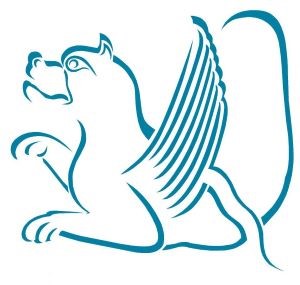New Left Review - Number: 60, November / December - 2009

Ho-fung Hung: America's Head Servant? Against predictions that China will soon replace the US as the world's dominant economic power, Hung Ho-fung argues that the PRC's export-oriented growth and vast dollar reserves have trapped it in a subordinate role—to which much of its elite remains committed. Mary Callahan: Myanmar's Perpetual Junta What explains the exceptional durability of the Tatmadaw? Mary Callahan looks to the regime's origins in struggles against British colonial rule, and to the impact of Whitehall's dual mapping of the country upon its complex ethnic patterns and social structures. Joachim Kalka: Money As We Knew It? As coins and banknotes are displaced by credit cards and virtual transactions, Joachim Kalka conjures twin visions of money's sensuous effects—prompting mystical revulsion or cartoonish delight—from the disappearing world of cash. A. Sivanandan: An Island Tragedy A. Sivanandan recounts his country's long road to ethnic cleansing, from the social engineering of colonial Ceylon to Colombo's anti-Tamil campaigns. Marginalization, displacement and destruction of a people, in a communal onslaught fanned by Buddhist chauvinism. Erik Olin Wright: Understanding Class Conventionally seen as mutually opposed, could insights from the three principal paradigms of class analysis—Marxist, Weberian and stratification theories—be combined? Erik Olin Wright offers models for an integrated approach. Tom Reifer: Capital's Cartographer A former pupil recalls Giovanni Arrighi's world-spanning trajectory, landmark intellectual contributions and great personal generosity. Geographies of power, histories of inequality in the work of one of the leading analysts of our times. BOOK REVIEWS John Grahl on Michel Aglietta and Laurent Berrebi, Désordres du capitalisme mondial. A prescient état des lieux of the global economy, identifying its imbalances and possible future trajectories. Gregor McLennan on Peter Dews, The Idea of Evil. Exploration of the nature—and necessity?—of humankind's moral orientation, tracing a thread from Kant and Hegel to Nietzsche and Adorno.
Ho-fung Hung: America's Head Servant? Against predictions that China will soon replace the US as the world's dominant economic power, Hung Ho-fung argues that the PRC's export-oriented growth and vast dollar reserves have trapped it in a subordinate role—to which much of its elite remains committed. Mary Callahan: Myanmar's Perpetual Junta What explains the exceptional durability of the Tatmadaw? Mary Callahan looks to the regime's origins in struggles against British colonial rule, and to the impact of Whitehall's dual mapping of the country upon its complex ethnic patterns and social structures. Joachim Kalka: Money As We Knew It? As coins and banknotes are displaced by credit cards and virtual transactions, Joachim Kalka conjures twin visions of money's sensuous effects—prompting mystical revulsion or cartoonish delight—from the disappearing world of cash. A. Sivanandan: An Island Tragedy A. Sivanandan recounts his country's long road to ethnic cleansing, from the social engineering of colonial Ceylon to Colombo's anti-Tamil campaigns. Marginalization, displacement and destruction of a people, in a communal onslaught fanned by Buddhist chauvinism. Erik Olin Wright: Understanding Class Conventionally seen as mutually opposed, could insights from the three principal paradigms of class analysis—Marxist, Weberian and stratification theories—be combined? Erik Olin Wright offers models for an integrated approach. Tom Reifer: Capital's Cartographer A former pupil recalls Giovanni Arrighi's world-spanning trajectory, landmark intellectual contributions and great personal generosity. Geographies of power, histories of inequality in the work of one of the leading analysts of our times. BOOK REVIEWS John Grahl on Michel Aglietta and Laurent Berrebi, Désordres du capitalisme mondial. A prescient état des lieux of the global economy, identifying its imbalances and possible future trajectories. Gregor McLennan on Peter Dews, The Idea of Evil. Exploration of the nature—and necessity?—of humankind's moral orientation, tracing a thread from Kant and Hegel to Nietzsche and Adorno.
















